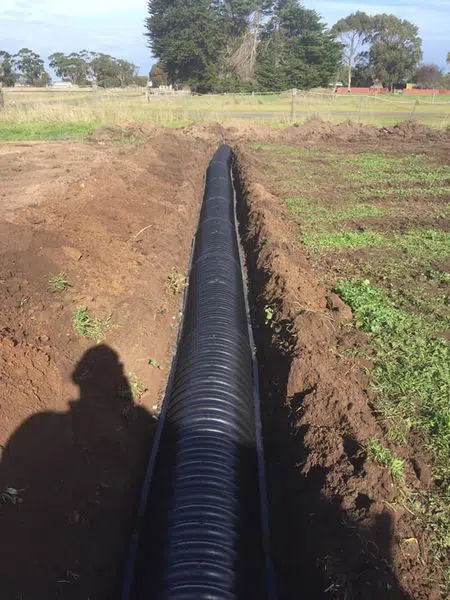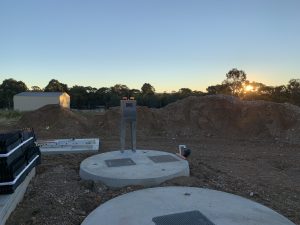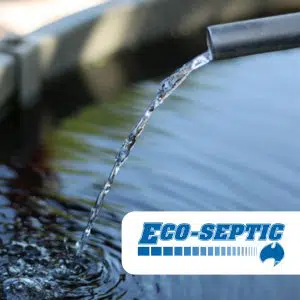Understanding Wastewater Production and its Impact on Septic System
The Economics of Septic Systems: Cost Savings and Long-Term Investments
Septic systems often conjure images of hidden infrastructure buried beneath lawns, but their economic implications are anything but invisible. For homeowners, understanding the economics of septic systems goes beyond initial installation costs; it encompasses long-term savings, environmental benefits, and the value they add to properties. In this comprehensive guide, we’ll explore how septic systems offer significant cost savings and serve as wise long-term investments for homeowners.
The Economics of Septic Systems: Cost Savings and Long-Term Investments
Septic systems often conjure images of hidden infrastructure buried beneath lawns, but their economic implications are anything but invisible. For homeowners, understanding the economics of septic systems goes beyond initial installation costs; it encompasses long-term savings, environmental benefits, and the value they add to properties. In this comprehensive guide, we’ll explore how septic systems offer significant cost savings and serve as wise long-term investments for homeowners.

The Economics of Septic Systems: Cost Savings and Long-Term Investments
Septic systems often conjure images of hidden infrastructure buried beneath lawns, but their economic implications are anything but invisible. For homeowners, understanding the economics of septic systems goes beyond initial installation costs; it encompasses long-term savings, environmental benefits, and the value they add to properties. In this comprehensive guide, we’ll explore how septic systems offer significant cost savings and serve as wise long-term investments for homeowners.
The Initial Investment
The initial investment in a septic system is a crucial consideration for homeowners, as it sets the foundation for long-term cost savings and environmental benefits. While the upfront costs may seem significant, they represent a one-time expense compared to the ongoing fees associated with centralized sewer systems. Factors such as soil conditions, lot size, and system design can influence the total cost of installation. For example, properties with challenging terrain or high water tables may require specialized system designs, which can increase installation costs. However, investing in a well-designed septic system tailored to the property’s specific needs ensures optimal performance and longevity, ultimately maximizing the return on investment over time.
Cost Savings Over Time
The cost savings associated with septic systems extend far beyond the initial investment, offering homeowners significant financial advantages over the lifespan of the system. Unlike centralized sewer systems, which require monthly service charges and potential rate increases, septic systems entail minimal ongoing expenses beyond routine maintenance. With proper care and maintenance, a well-designed septic system can last for decades, providing reliable wastewater treatment without the recurring costs associated with municipal sewer service. Additionally, homeowners with septic systems have greater control over their expenses, as they are not subject to fluctuating sewer rates or infrastructure maintenance fees imposed by municipal authorities.
Environmental Benefits
In addition to cost savings, septic systems offer significant environmental benefits that contribute to long-term sustainability and ecosystem health. By treating wastewater onsite, septic systems reduce the strain on public infrastructure and minimize the energy required for transporting and processing wastewater at centralized treatment plants. This decentralized approach to wastewater management helps reduce carbon emissions and energy consumption associated with wastewater treatment, contributing to overall environmental conservation efforts. Furthermore, septic systems help protect groundwater and surface water from contamination, preserving water quality and ecosystem integrity for future generations. By investing in septic systems, homeowners play a vital role in promoting environmental sustainability and minimizing their ecological footprint.
Property Value Appreciation
Another often-overlooked benefit of septic systems is their positive impact on property values. Homes with well-maintained septic systems are often more attractive to buyers, as they offer the convenience of private wastewater treatment without the recurring expenses associated with municipal sewer service. Additionally, properties in rural or remote areas without access to centralized sewer systems may command higher prices due to the necessity and perceived value of onsite wastewater treatment. By investing in a septic system, homeowners not only enjoy the benefits of reliable wastewater treatment but also enhance the marketability and resale value of their properties. This increase in property value can further offset the initial investment in the septic system and provide a tangible return on investment over time.
Long-Term Investments
Viewed through the lens of long-term investments, septic systems emerge as prudent financial decisions for homeowners seeking to maximize cost savings and environmental benefits. While centralized sewer systems may offer the convenience of “set it and forget it” service, they come with ongoing expenses and limited control over pricing and infrastructure maintenance. In contrast, homeowners with septic systems enjoy greater autonomy and flexibility, with the ability to manage their wastewater treatment needs according to their preferences and budget. By investing in a septic system, homeowners make a wise long-term investment in the sustainability and value of their properties, reaping financial rewards and environmental benefits for years to come.
Factors Influencing Costs
Several factors can influence the economics of septic systems and their long-term viability as investments. These include:
System Design and Installation: Proper system design and installation are essential for maximizing efficiency and longevity while minimizing costs. Working with qualified professionals ensures that the system is tailored to the property’s specific needs and environmental conditions.
Maintenance and Care: Regular maintenance, including inspections, pumping, and minor repairs, is crucial for extending the lifespan of a septic system and avoiding costly emergencies. Investing in preventative care pays dividends in terms of system performance and durability.
Local Regulations and Permitting: Compliance with local regulations and permitting requirements is necessary for installing and maintaining a septic system. Understanding and adhering to these regulations can prevent costly fines and legal issues down the road.
Soil Conditions and Site Characteristics: Soil type, slope, and groundwater levels can all impact the feasibility and cost of installing a septic system. Conducting a thorough site evaluation helps identify potential challenges and inform system design decisions.
The economics of septic systems extend far beyond their upfront costs, encompassing long-term savings, environmental benefits, and property value appreciation. By investing in a well-designed and properly maintained septic system, homeowners can enjoy significant cost savings over time, greater control over their wastewater treatment needs, and the satisfaction of contributing to a healthier environment. Ultimately, septic systems represent not only sound financial decisions but also wise investments in the future of homes and communities.
For a Free Quote and Sizing on all Septic Tanks Made in Australia call the team at Eco-Septic on 1800 808 135
Related Posts
- Is Wastewater Treatment sustainable?
- Five reasons to use Australian-made septic tanks
- What Size Septic Tank Do I Need For My Home?
- What are septic pump wells and how do they work?
- Why is Aeration Used in Wastewater Treatment
- Below-Ground Septic Tanks: Sydney’s Septic Solutions
- What Are The Sources Of Wastewater?
- Septic Tank Maintenance Guide





